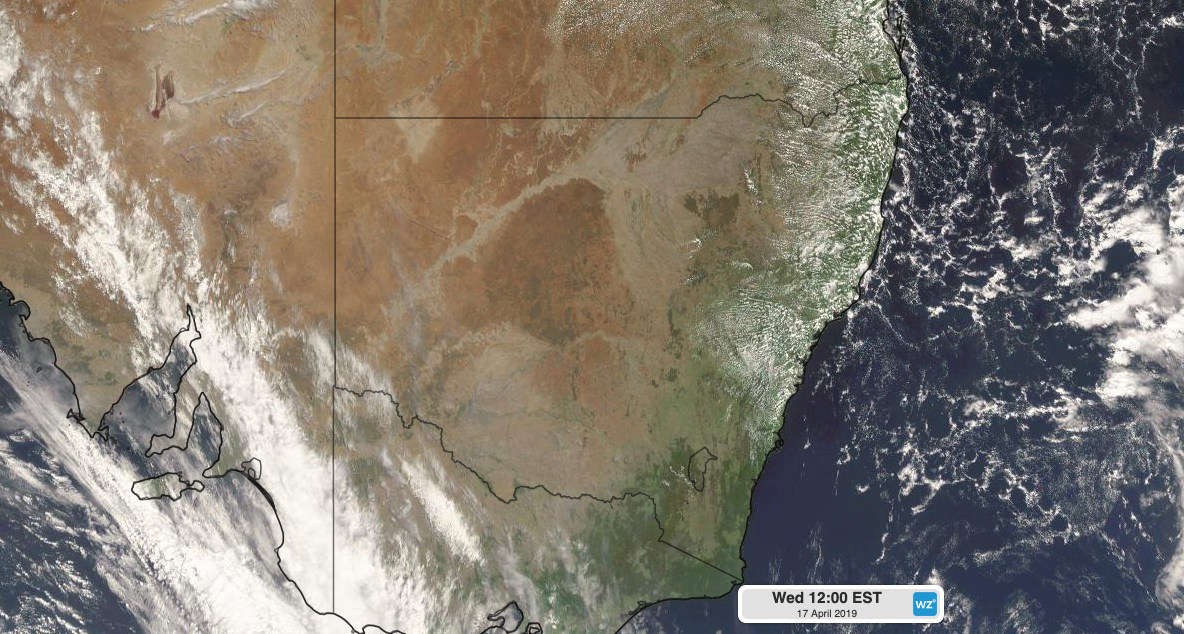Familiar weather in NSW this long weekend

Much of NSW will experience a familiar mix of predominantly dry and unseasonably warm weather this Easter long weekend.
A slow-moving high pressure system over the Tasman Sea will prevent any heavy rain-bearing system from penetrating NSW during the long weekend. While some areas will pick up a few showers and possibly storms, most of the state won't need an umbrella.

Image: NSW was mostly cloud free on Wednesday, once again.
The high in the Tasman will also allow warm air from central Australia to drift over NSW at the end of the week, causing maximum temperatures to climb a few degrees above average for this time of year.
This continues a prolonged spell of warm and dry weather that has gripped NSW for more than a year.
NSW has only registered above-average statewide rainfall during two out of the past 15 months, while the state's mean temperature has been above average during each of the last 29 months.
During this 29-month warm spell, 21 months exceeded their long-term average by more than one degree.
Looking ahead, this prolonged period of warm and dry weather could continue into the start of winter.
The latest seasonal outlook issued by the Bureau of Meteorology indicates that below average rainfall, and above average temperatures, are favoured for large areas of eastern Australia during the next three months. This outlook is being influenced by an El Nino-like pattern in the Pacific Ocean, which has a chance of developing into a fully fledged El Nino event in the months ahead.
Fortunately, most forecast models suggest that an El Nino event would be relatively weak and short-lived if it were to develop in the months ahead.
If NSW registers above-average mean temperatures in April, May and June, the state's run of warmer than average months will reach a record-breaking 32 in a row. The previous record was 31 consecutive months between September 2012 and March 2015.